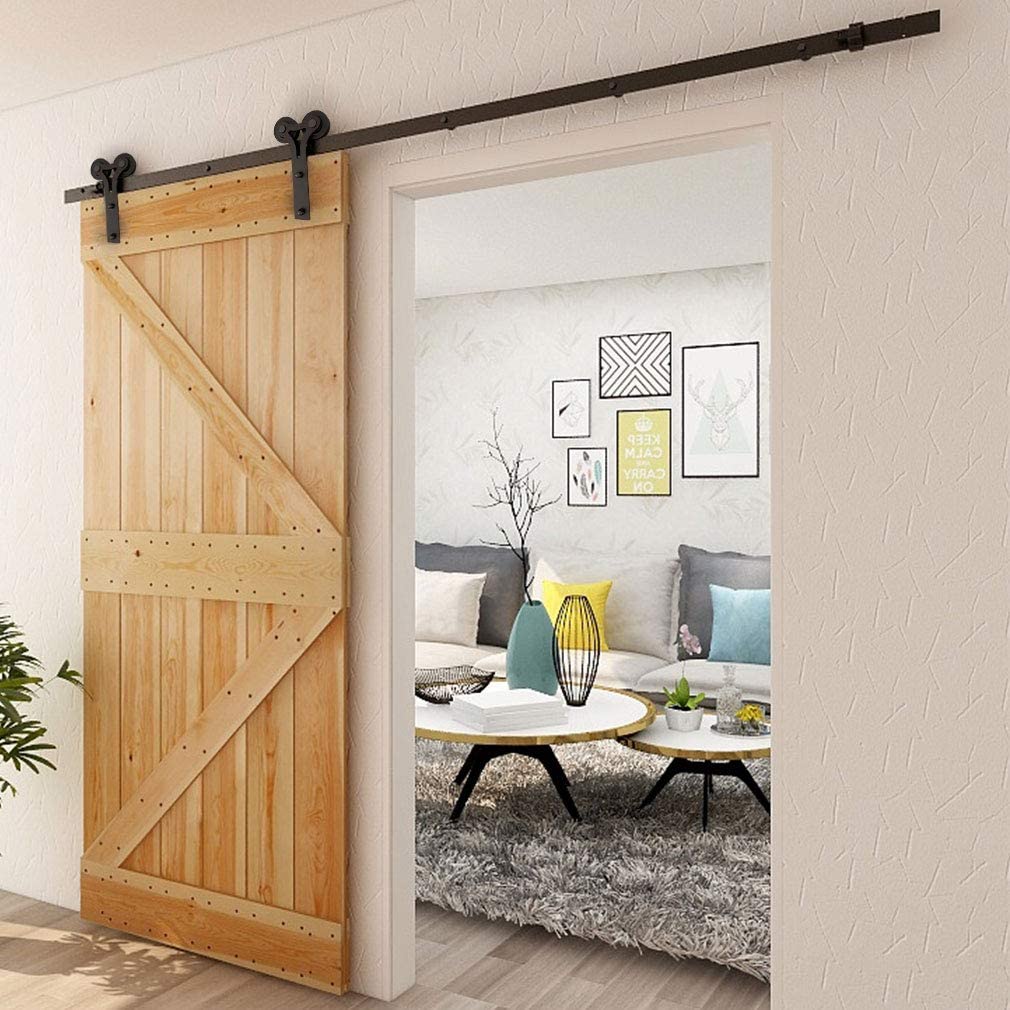Barn doors are growing in popularity across a wide variety of household aesthetics. They’re defined by a timeless charm and their space-saving functionality, making them the go-to choice for people transitioning away from solely traditional doors in homes. However, barn styles aren’t generally soundproof door varieties. Unlike traditional doors that fit snugly within a door frame, barn doors slide along a track, leaving gaps around the edges where noise can easily pass through.
If you’ve ever wondered, “Can you soundproof a barn door?” The answer is yes, with a little bit of technique. Privacy is important, whether you’re sharing a house with friends, family or living alone with regular guests. It’s important to understand basic and more advanced tips for creating a soundproof barn door in your space. While barn varieties may not be as effective at naturally blocking sound as solid-core hinged doors, there are several techniques you can use to reduce noise transfer and enhance your home’s seclusion.
We’ve put together this guide to walk you through how to soundproof a barn door, from physically sealing gaps with additional touches to choosing the best materials and hardware.
Why barn styles aren’t naturally soundproof doors
Before looking at soundproofing solutions, let’s touch on why barn doors don’t tend to be particularly sound insulating.
Why noise passes through barn doors
- Gaps around the door. Traditional doors fit snugly inside a door frame, while barn doors leave gaps at the sides, top, and bottom for their operation, allowing sound waves to escape.
- Lighter materials. Many barn doors are made from lightweight wood or hollow-core materials, which don’t effectively block sound like heavier materials.
- Sliding mechanism. Because barn doors won't latch or seal like standard doors, they don’t create an airtight closure, meaning noise passes through more freely than swinging doors.
- Wall reflection. Barn doors often sit slightly away from the wall for easier passage, which can amplify noise instead of dampening it.
What level of soundproofing can you expect?
While a barn door won’t be completely soundproof—this isn’t going to be Fort Knox—the right techniques can significantly reduce noise transfer. With proper sealing, heavy materials, and upgraded hardware, you can create a much quieter and more private space.
Sealing gaps to create soundproof doors for home privacy
One of the most effective ways for soundproofing doors DIY is to simply seal up the gaps where those decibels escape.
Weatherstripping
Installing weatherstripping around the edges of the door helps block sound while also preventing drafts and light leaks—which is great for energy efficiency, too. Options for weatherstripping include foam tubing or rubber gaskets for flexible, fairly durable sound insulation.
Steps to install weatherstripping include:
- Measure the gap size around your barn door.
- Choose a weatherstrip that fits snugly but allows smooth sliding.
- Peel and stick the adhesive backing along the edges of the door or wall.
Door sweeps
Attached to the bottom of the door, a door sweep helps seal the gap between the door and the floor, reducing noise leakage. Common forms of door sweeps include:
- Brush sweeps, which are ideal for lighter sound reduction.
- Rubber sweeps, which offer more comprehensive noise blocking.
A handy tip for installation is attaching the sweep to the bottom of the door so it lightly touches the floor when closed, forming a barrier against sound.
Side and top trim
Adding wood or rubber trim around the top and sides of the door helps create a tighter seal. Wood is generally considered a simpler DIY solution, while acoustic foam strips absorb sound waves for more effective dampening. An additional sliding track cover can be used above the door to block overhead gaps as well.
Choosing materials for a soundproof barn door
The material of your barn door plays a major role in how much sound it blocks, with the primary difference being hollow vs. solid core doors, along with additional materials that can be added.
- Solid wood barn doors. The more soundproof barn doors are made of solid wood, which is dense in nature so absorbs sound more effectively.
- Hollow-core barn doors. Lightweight and less effective for noise reduction.
- MDF or composite barn doors. MDF and composite materials are often cheaper, while providing better noise insulation than hollow-core options.
- Acoustic panels or foam. You can attach soundproofing panels or acoustic foam to the back of your barn door for extra noise reduction.
- Mass-loaded vinyl (MLV). This is a thin but heavy material that can significantly enhance sound insulation when attached to a barn door.
Using barn door hardware for soundproofing
Your barn door hardware kit can also impact how much noise your door lets through. The right options can include hidden roller kits that help to insulate the sounds of operation. Similar choices include more heavy-duty tracks and rollers, which minimize rattling and movement noise. Magnetic seals and latches can help hold the door in place, reducing ambient movement noise.
Finding the right barn doors for soundproofing
While barn doors aren’t naturally the best option for soundproof doors for homes, there are plenty of ways to reduce noise transfer and improve your household privacy without sacrificing your sense of aesthetic taste. Seal any gaps, choose the right materials, and upgrade hardware to transform your barn door into an effective sound barrier, improving your sense of calm and sanctuary between roommates, children, pets—or any other noise producers around!
Ready to enhance your space now you know how to soundproof barn doors? Explore our selection of high-quality doors and soundproof-friendly hardware kits today! For more insights into the nature of these doors, you can check out our blog today!


